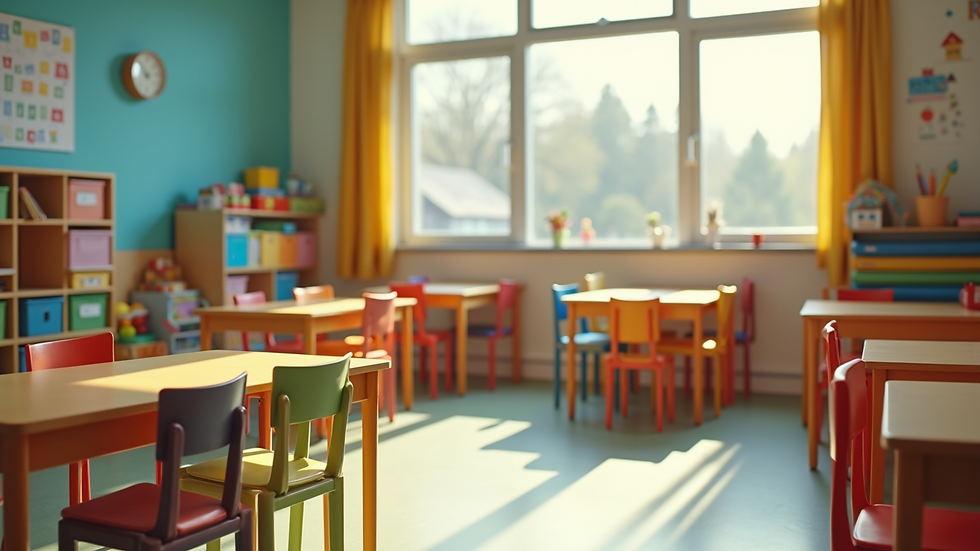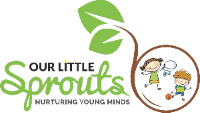Choosing the Best Early Childhood Curriculum for Your Child
- Our Little Sprouts

- Jul 21, 2025
- 4 min read
Selecting the right early childhood curriculum for your child is a pivotal decision that can shape their future learning experiences. It's essential to choose a program that not only supports their developmental needs but also aligns with your family values. With so many options available, it can be overwhelming to decide. In this blog post, we will guide you through the factors to consider and the steps to take when choosing the best early childhood curriculum for your child.
Guidelines for Child Education Programs
When evaluating various early childhood education programs, it is crucial to examine the curriculum's goals and teaching philosophy. Programs should foster holistic development, addressing cognitive, social, emotional, and physical growth. Here are some guiding principles to consider:
Child-Centered Approach: Look for programs that prioritize children's interests and curiosity. A child-centered approach encourages autonomy and promotes joy in learning. Children thrive in environments that allow them to explore and discover at their own pace.
Hands-On Learning Opportunities: Quality programs provide interactive experiences that engage children actively. This includes play-based learning, which is essential for young children as it enhances creativity and problem-solving skills.
Qualified Educators: Ensure that the teaching staff is experienced and trained in early childhood education. Educators should be able to create stimulating learning environments and connect with children on their level.
Family Involvement: Involving families in the learning process creates a supportive community and enhances the children's educational experience. Look for programs that encourage parental participation through events, workshops, and regular communication.
Diverse Learning Environments: A quality program should offer varied settings for learning, such as outdoor play areas, access to nature, and spaces for creative activities. These environments promote exploration and enable children to learn from their surroundings.

Understanding the Importance of Early Childhood Education
Research consistently shows that early childhood education institutions can significantly impact a child's developmental trajectory. Studies indicate that children who attend quality preschool programs are more likely to perform better in school and exhibit healthier social-emotional behaviors.
According to a study published by the National Institute for Early Education Research (NIEER), children enrolled in high-quality preschool programs are likely to achieve better outcomes in academics and are more prepared for kindergarten.
Furthermore, early childhood education lays a solid foundation for lifelong learning. It establishes essential skills such as critical thinking, cooperation, and communication.
Incorporating an early childhood curriculum that emphasizes these skills can lead to enriched future educational experiences for your child.
What are Curriculum Models in Early Childhood Education?
When exploring early childhood curricula, you may encounter different curriculum models that each provide unique educational philosophies. Understanding these models can help you select the right program:
Montessori Method: This child-led approach focuses on fostering independence and creativity. Children work at their own pace, selecting activities that interest them, which promotes self-directed learning.
Reggio Emilia Approach: This model emphasizes collaboration and community. In this approach, children express themselves through various "languages" (art, discussion, music), and projects are often developed based on children's interests.
HighScope Curriculum: This model incorporates active participatory learning. Children engage in hands-on experiences that promote problem-solving and critical thinking. Each day is structured around a consistent daily routine.
Creative Curriculum: This approach blends various educational philosophies, focusing on making learning interactive and exploratory. It encourages children to learn through play and creative expression while also emphasizing assessment based on developmental progress.
Each model has its strengths and might cater to different learning styles. Research the options and consider your child's personality and learning preferences when making a choice.

Key Questions to Ask When Choosing a Curriculum
Before enrolling your child in a program, there are several key questions to ask your prospective school or daycare:
What is the philosophy behind the curriculum? Understanding the underlying principles can help you gauge whether the program aligns with your teaching philosophy.
How is the curriculum tailored to meet the needs of individual children? Schools should have methods in place to adapt to each child's development and interests.
What assessment methods do you use? Knowing how the program evaluates children's progress can provide insights into their growth and development.
How is communication maintained between parents and educators? Regular communication ensures parents remain engaged and informed about their child's progress and experiences at the school.
What kind of resources and materials are available? Look for programs that provide rich materials that engage children's senses, stimulate creativity, and encourage imaginative play.
Asking these questions can help clarify expectations and establish a strong partnership with educators to support your child's learning journey.
The Role of Play in Early Childhood Learning
Play is often referred to as the "work" of children. When selecting an early childhood curriculum, it's essential to recognize the value of play in education. Research indicates that play-based learning enhances cognitive and social development.
Cognitive Development: Through play, children experiment with concepts and engage in problem-solving. For instance, building blocks can introduce concepts of balance, gravity, and spatial awareness.
Social Development: Play encourages cooperation and negotiation among peers. Children learn to share, take turns, and navigate friendships, which are essential social skills.
Emotional Development: Play provides opportunities for children to express their emotions and understand others' feelings. Through imaginative play, they can explore different roles and scenarios.
When evaluating an early childhood curriculum, observe how much emphasis is placed on play and if the curriculum is designed to integrate play into the learning process.

Final Thought on Choosing the Right Curriculum
In conclusion, choosing the best early childhood curriculum for your child is an important decision that requires careful consideration. Reflect on your child's personality, interests, and developmental needs. Evaluate different programs based on their philosophy, approach to learning, and family involvement.
Remember that parents play a crucial role in their children's education. Engage in discussions with educators, participate in school activities, and stay informed about your child's progress. This collaborative effort between home and school can significantly enhance your child's early learning experience.
Explore various options thoughtfully, ensuring that the chosen program provides a nurturing and stimulating atmosphere conducive to your child's growth and education. Discover more about an appropriate early childhood curriculum by clicking here. Your involvement will not only support your child's early education but will also lay the groundwork for a lifetime of learning.




Comments